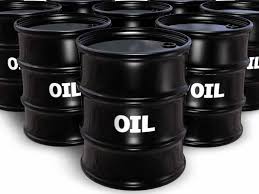P
ProfRem
Guest
Oil prices rose Monday on Middle East supply risks after Saudi Arabia cut diplomatic ties with Iran.
At about 1230 GMT, US benchmark West Texas Intermediate for delivery in February climbed 30 cents to $37.34 a barrel.
The Organization of the Petroleum Exporting Countries, whose 13 members include Saudi and Iran, decided last month against cutting output levels despite a plunge in oil prices - in a bid to maintain market share faced with competition from North American shale oil output.
It is well known fact that oil is a far more complex commodity to analyse than any other, however,
InformationNigeria put the following 7 reasons forward why Nigeria needs a rise in oil price.

These are:
1. Rising oil prices contribute to increased consumption whereas a decrease is devastating.
2. Because falling oil prices shrinks not only government’s purse but also those of its citizens, retail boom could be directly hit.
3. Because 75 percent of the Nigerian government’s revenue comes from taxes on the oil and gas sector.
4. Because oil and gas provide the critical source of Nigeria’s foreign exchange as it makes up more than 90 percent of exports, therefore a continuous drop will have an adverse effect on Nigeria’s foreign exchange.
5. Falling prices of oil would have an adverse effect on the value of Naira, which could scare foreign investors away.
6. Funds kept in Nigeria’s Excess Crude Account and other savings that the country uses to survive on rainy days are gotten from oil revenues. Government’s revenue is largely funded by oil, funds for its capital and recurrent spending is heavily reliant on the income from the oil, therefore fall in oil prices has greatly affected the country’s savings.
7. Nigeria may be forced into borrowing or cut back on spending, a potential catalyst for social unrest just so it can maintain its economy.

